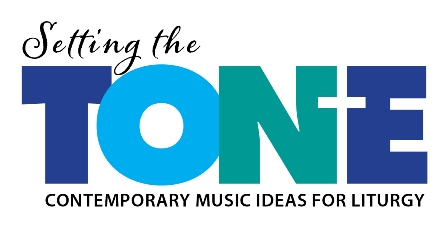Tip of the day: If you have laryngitis and continue singing, you run the risk of developing nodes.
I did.
It seems somehow ironic that my last post was about the beautiful sound of the human voice in the Thomas Aquinas Chapel at St. Meinrad, and how I stated “I do believe that we all left there with the understanding that our voice is our main instrument.”
Well, I can’t use mine for another few weeks.
It has affected my entire perspective while leading music at Mass. Obviously, I’m not cantoring—we have many talented singers who can handle that part— but I am still leading the band. It’s a little strange trying to communicate with only gestures and a white-board, but it works. So far the experience for me has been both positive...and educational. Here’s what I mean:
Since we’ve been very consistent in how we present, lead, and play our music, there hasn’t really been so much as a hiccup in the flow of things. The musicians are all very used to how I approach the songs, start them, build them up, end them, etc.. They can pretty much read my mind, knowing what I’m going to do before I do it. With a simple look or a glance I can communicate what I’m thinking and they follow me. (Yeah, they pretty much rock.) I’m sure we’ll be able to keep this up for another month or so. Maybe even longer if we have to. If it gets too long, I’ll probably need to step aside for awhile...and I don’t want to do that. I would miss it terribly. But, so far so good.
It’s also been educational in that I’ve begun to ask myself: “Am I too predictable?” In other words, maybe I need to start being more creative in the way we do things. Maybe. But then again, in a liturgical setting I think there is room (and a need) for both. As so many people have argued in the past and present–and rightfully so– it’s not a concert, it’s a liturgy. Our music is a PART of what is happening. It is meant to complement the Mass, not distract from it or even live on its own. The assembly needs to know where we are going musically. They need to be able to follow the musicians, just like the musicians are following me, even though I can’t speak or sing. So, in that sense, I guess predictable is okay. Predictable is good. As long as predictable doesn’t mean stale.
My goal, in the upcoming weeks, is to really listen while I play– to not just the notes, but the whole “tone” of what is happening. In a way, I really feel I’ve been given a gift to sit back and take it all in. I’m always so involved in every aspect of the music at Mass. For now, I can still be right in the middle of it, but listen with undistracted ears to the big picture.
“Talk” to you later...
